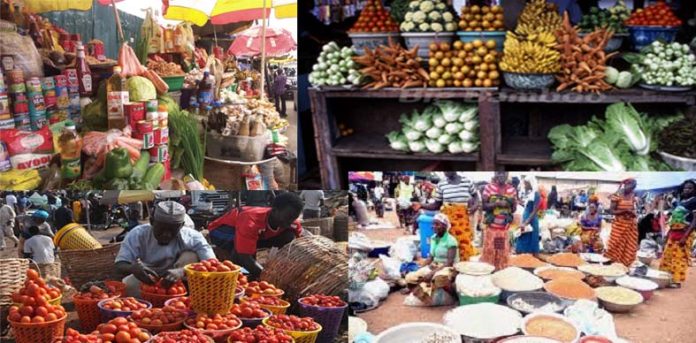BY GOD’S GIFT NEMI
The rising cost of essential foodstuffs between May and September 2024 has put a significant strain on households, as inflation continues to affect the affordability of basic goods.
With staples like rice, beans, and cooking oil witnessing sharp price increases, many Nigerians are finding it harder to make ends meet.
Research from the World Bank supports this, stating that sharp increases in food prices elevate poverty, reduce nutrition, and limit access to essential services like education and healthcare.
In interviews with local traders, our correspondent discovered that staples such as rice, beans, palm oil, and groundnut oil have become significantly more expensive over the past months.
According to a trader, Mrs Angel Ugochukwu, in May, a bag of rice was sold between ₦70,000 and ₦80,000, with a basket of rice priced at ₦6,000 to ₦6,500. “A bag of beans ranged from ₦6,000 to ₦7,000, while garri sold for ₦200 per measure. Palm oil was ₦1,000 per litre, and groundnut oil was ₦1,200 to ₦1,300 per litre.
“However, by September, these prices have risen drastically. A bag of rice now costs ₦86,000 to ₦90,000, depending on the type, with a cup of rice priced at ₦400 to ₦500. “The price of a basket of beans has increased to ₦8,000 for white beans and ₦9,000 for brown beans. Groundnut oil now sells for ₦11,500 to ₦13,000, and palm oil has risen to ₦14,000 for a gallon” she added.
Another trader, Mrs Luke (surname withheld), echoed similar sentiments remarking that the rising prices have drastically affected sales, with many Nigerians struggling to afford basic meals.
According to her: “Before, I could sell over ₦15,000 worth of goods in a day, but now sales have dropped. People are managing what little they have, and many can no longer afford to eat three times a day.”
The economic impact of these rising food prices extends beyond individual households. Mrs Luke highlighted that inflation, reduced consumer spending, and increased business costs are all contributing to a slowdown in economic activity. “Before, ₦1,000 could buy all the ingredients needed to cook a meal, but now ₦1,000 is barely enough for one item,” she said.


